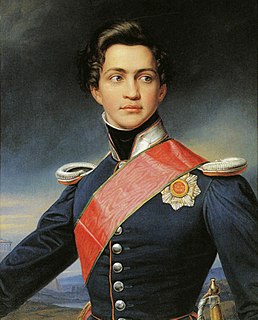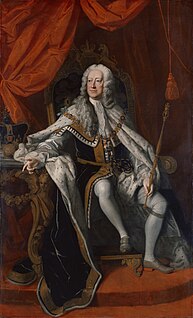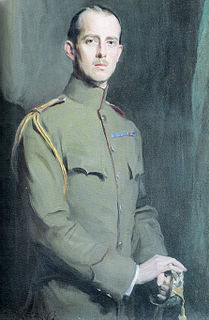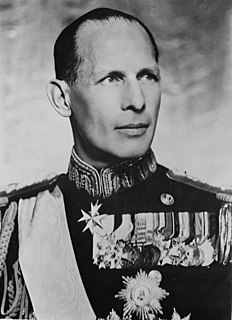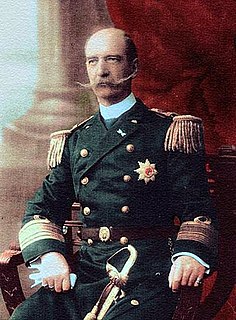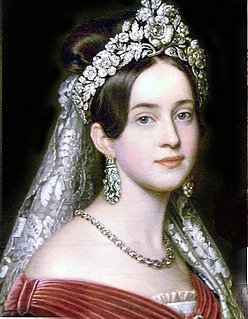This article may be expanded with text translated from the corresponding article in French. (August 2012)Click [show] for important translation instructions.
|
From 19 November 1862 (1 December New Style), a plebiscite in Greece was held in support of adopting Prince Alfred of the United Kingdom, later Duke of Edinburgh, as king. The results were announced in February the following year. Of the 240,000 votes reported, over 95% were in favour of the appointment. [1] The previous king, Otto, who had been deposed in a popular revolt, received one vote. [2] There were six votes for a Greek candidate and 93 for a Republic. [3]
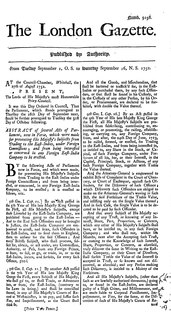
Old Style (O.S.) and New Style (N.S.) are terms sometimes used with dates to indicate that the calendar convention used at the time described is different from that in use at the time the document was being written. There were two calendar changes in Great Britain and its colonies, which may sometimes complicate matters: the first was to change the start of the year from Lady Day to 1 January; the second was to discard the Julian calendar in favour of the Gregorian calendar. Closely related is the custom of dual dating, where writers gave two consecutive years to reflect differences in the starting date of the year, or to include both the Julian and Gregorian dates.
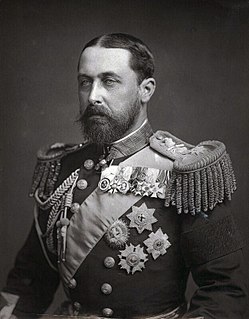
Alfred reigned as Duke of Saxe-Coburg and Gotha from 1893 to 1900. He was the second son and fourth child of Queen Victoria of the United Kingdom and Prince Albert of Saxe-Coburg and Gotha. He was known as the Duke of Edinburgh from 1866 until he succeeded his paternal uncle Ernest II as the reigning Duke of Saxe-Coburg and Gotha in the German Empire.
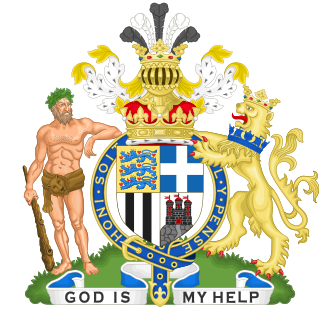
Duke of Edinburgh, named after the city of Edinburgh, Scotland, is a substantive title that has been created three times for members of the British royal family since 1726. The current holder is Prince Philip, husband of Queen Elizabeth II.
Contents
Despite the apparently overwhelming result, the Great Powers of Britain, France and Russia refused to permit any member of their respective royal families to accept the Greek throne. Eventually, Prince William of Denmark, who had received six votes in the referendum, was appointed as the new "King of the Hellenes".

The British Empire comprised the dominions, colonies, protectorates, mandates and other territories ruled or administered by the United Kingdom and its predecessor states. It originated with the overseas possessions and trading posts established by England between the late 16th and early 18th centuries. At its height, it was the largest empire in history and, for over a century, was the foremost global power. By 1913, the British Empire held sway over 412 million people, 23% of the world population at the time, and by 1920, it covered 35,500,000 km2 (13,700,000 sq mi), 24% of the Earth's total land area. As a result, its political, legal, linguistic and cultural legacy is widespread. At the peak of its power, the phrase "the empire on which the sun never sets" was often used to describe the British Empire, because its expanse around the globe meant that the sun was always shining on at least one of its territories.

The Second French Empire, officially the French Empire, was the regime of Napoleon III from 1852 to 1870, between the Second Republic and the Third Republic, in France.

The Russian Empire, also known as Imperial Russia or simply Russia, was an empire that existed across Eurasia and North America from 1721, following the end of the Great Northern War, until the Republic was proclaimed by the Provisional Government that took power after the February Revolution of 1917.
